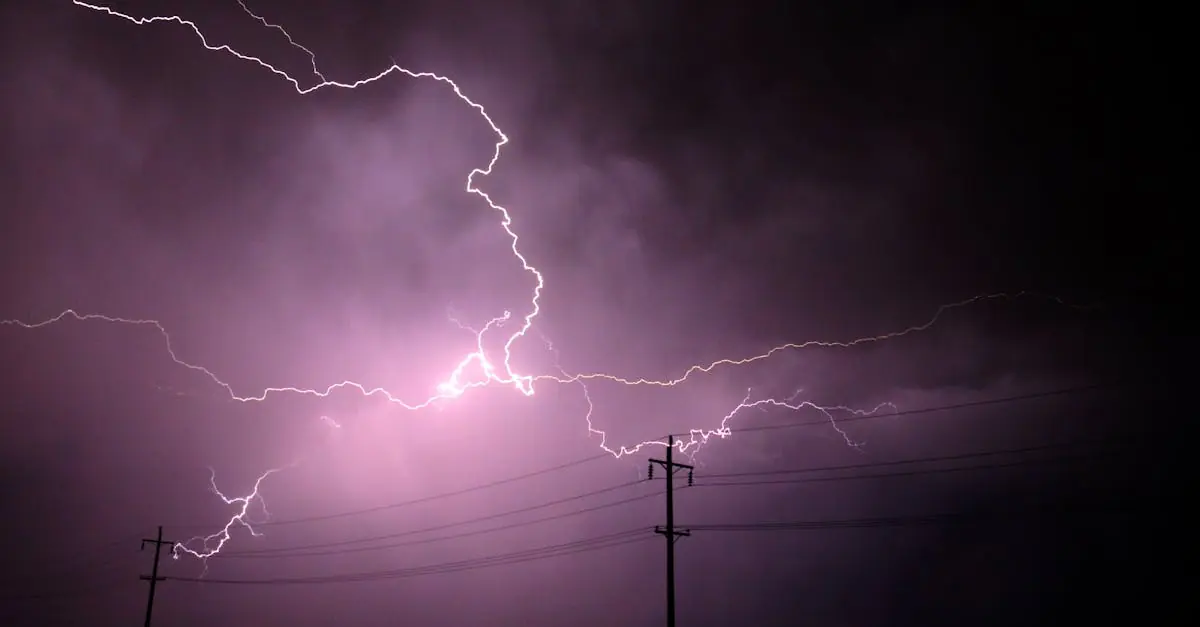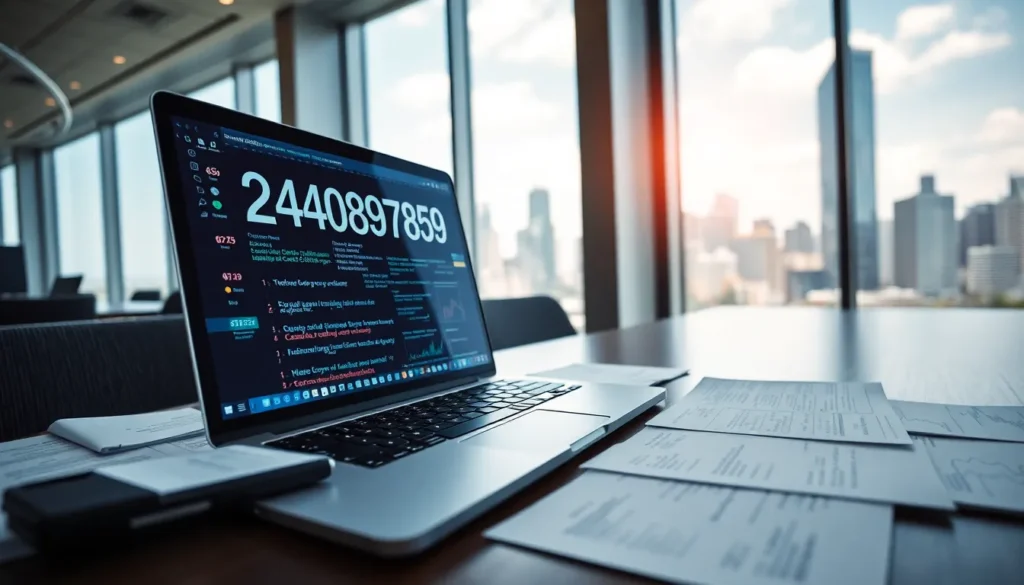Table of Contents
ToggleIn a world where our smartphones have become an extension of ourselves, the question of whether to charge an iPhone every night looms large. It’s like asking if you should wear pants to the grocery store—sure, you can go without, but it might not end well. With battery anxiety creeping in, many wonder if nightly charging is the secret to keeping their device alive and kicking.
But hold on! Is it really necessary to plug in that sleek gadget every evening? Or is it just a habit that’s become as automatic as scrolling through social media? Let’s dive into the electrifying debate and discover whether nightly charging is a tech-savvy move or just a recipe for a battery drama. Your iPhone deserves the best, but does it need a nightly cuddle with the charger?
Understanding iPhone Battery Health
Battery health plays a critical role in maintaining the performance and longevity of an iPhone. Understanding the intricacies of battery technology allows users to make informed decisions regarding charging habits.
Lithium-Ion Battery Basics
Lithium-ion batteries power iPhones, offering high energy density and lightweight characteristics. These batteries undergo a charge cycle, defined as the process of charging from 0% to 100% and discharging back to 0%. Optimal charging occurs between 20% and 80%, a range that minimizes wear on the battery. Constantly charging to 100% can lead to increased stress and shorten battery lifespan.
Factors Affecting Battery Life
Usage patterns significantly impact battery life. Background app activity, screen brightness, and network connectivity all consume power. Additionally, environmental factors like temperature affect performance. High temperatures can accelerate battery aging, while extremely low temperatures might reduce energy efficiency. Regular software updates can also optimize power management and enhance battery longevity. Monitoring battery usage can provide insights into which apps or features drain power most rapidly.
Charging Habits Overview
People commonly charge iPhones overnight. This practice often stems from the need for convenience, allowing users to wake up to a fully charged device.
Common Charging Practices
Charging during the night remains a widely accepted habit. Many users plug in their phones before bed, trusting their devices to handle battery management. Others may charge their iPhones whenever they find time throughout the day. Frequent charging helps maintain battery levels but can lead to habits that aren’t always battery-friendly. It’s crucial to recognize the effects of consistently relying on charging schedules.
Impact of Overnight Charging
Overnight charging can impact battery health. Lithium-ion batteries don’t require being plugged in all night. Stress occurs when devices charge to 100%, which happens while users sleep, targeting battery longevity. Potential overheating also poses a risk if charging occurs in warm environments. Waking up to a charged phone feels convenient; however, understanding the nuances of charging routines helps maintain optimal battery health. Adjusting charging habits can significantly prolong battery life and enhance overall device performance.
Pros of Nightly Charging
Charging an iPhone every night offers various benefits. Many users find it convenient and helpful for staying connected.
Convenience and Accessibility
Nightly charging ensures that the device remains accessible throughout the day. A fully charged phone allows users to stay engaged, whether for work or social purposes. Going to bed with a charged device reduces anxiety about battery levels during the day. It empowers users to use their phones freely without worrying about finding a charging point. Overnight charging fits well into busy schedules, allowing users to wake up to a ready-to-go device.
Battery Management Systems
Modern iPhones feature advanced battery management systems. These systems intelligently regulate the charging process to maintain battery health. At night, the phone can optimize charging cycles, stopping at 80% and completing the charge close to wake-up time. This capability minimizes stress on the battery, extending its overall lifespan. With built-in protections, users can trust their devices will handle nightly charging without significant damage. Such technology promotes efficient energy usage while ensuring the phone remains ready for daily use.
Cons of Nightly Charging
Nightly charging, while convenient, can lead to several drawbacks for iPhone users. Potential overheating poses a notable concern. When an iPhone remains plugged in overnight, its battery can generate heat. High temperatures impact battery chemistry, accelerating wear. This risk is greater in warm environments or when using a thick case that traps heat.
Long-term battery degradation becomes another significant issue. Charging an iPhone to 100% frequently contributes to declining battery health. Lithium-ion batteries thrive when kept between 20% and 80%, and excessive full charges can alter their chemical structure. Over time, this results in reduced capacity and shorter device longevity. Adopting different charging habits may help to mitigate these effects and prolong battery lifespan.
Alternatives to Overnight Charging
Exploring alternatives to overnight charging can significantly enhance iPhone battery health. Several practices and features exist to optimize charging habits.
Best Charging Practices
Charge an iPhone during the day when you can monitor it. Keeping the battery level between 20% and 80% proves beneficial for longevity. Shorter charging sessions reduce stress on the battery. Users can take advantage of idle times, such as during lunch breaks or while commuting. Consider using a fast charger for quick top-ups as needed. Gradual charging avoids the risks associated with full overnight cycles. Keeping the device cooler can also help maintain battery efficiency.
Using Battery Optimization Features
Utilizing built-in battery optimization features enhances overall battery management. iPhones come with options like Optimized Battery Charging, which learns user habits and limits full charges during extended charging periods. Enabling this feature allows the device to charge to 80% quickly, then complete the charge before the user wakes. This intelligent management minimizes wear on the battery. Users should also check for software updates regularly, as these often refine power management settings. Managing background app activity reduces unnecessary power drain and maintains battery health effectively.
Charging an iPhone every night may seem convenient but it’s essential to consider the long-term effects on battery health. While modern devices are equipped to manage overnight charging better than older models, potential risks like overheating and battery degradation still exist. Users should assess their charging habits and consider alternatives that promote battery longevity.
By keeping the battery level between 20% and 80% and charging during the day when possible, users can significantly enhance their device’s performance and lifespan. Adopting smarter charging practices not only ensures a reliable phone but also contributes to a more sustainable tech lifestyle.




